More Malaysians are choosing to move to Johor Bahru in 2025, and the reasons go beyond affordability. In recent years, Johor Bahru (commonly known as JB), the capital city of Johor state in southern Malaysia, has undergone a remarkable transformation. Once overshadowed by Malaysia’s larger urban centers like Kuala Lumpur and George Town, Johor Bahru is increasingly becoming a sought-after destination for Malaysians looking to move to Johor Bahru in 2025. This surge is not just a local phenomenon but a notable demographic and economic trend driven by a blend of strategic, economic, lifestyle, and infrastructural factors. Here’s an in-depth look at why more Malaysians are drawn to call Johor Bahru home in 2025.
Table of Contents
Strategic Geographical Location and Cross-Border Synergies
Johor Bahru’s geographical positioning offers a unique advantage—its immediate proximity to Singapore, one of Asia’s wealthiest and most dynamic cities. The Johor-Singapore Causeway, connecting these two cities, facilitates daily cross-border interaction, enabling Johor Bahru residents to work in Singapore while enjoying a far more affordable lifestyle at home.
For many professionals deciding to move to Johor Bahru, this balance between lower living costs and easy access to Singapore jobs is a major pull factor.
The Johor-Singapore Special Economic Zone (JS-SEZ)
One monumental catalyst influencing this migration trend is the launch of the Johor-Singapore Special Economic Zone (JS-SEZ) in January 2025. This zone spans approximately 3,500 square kilometers, covering the Iskandar Malaysia region and beyond. The goal is to create a seamless economic cooperation area that fuels growth through incentives and integrated development.
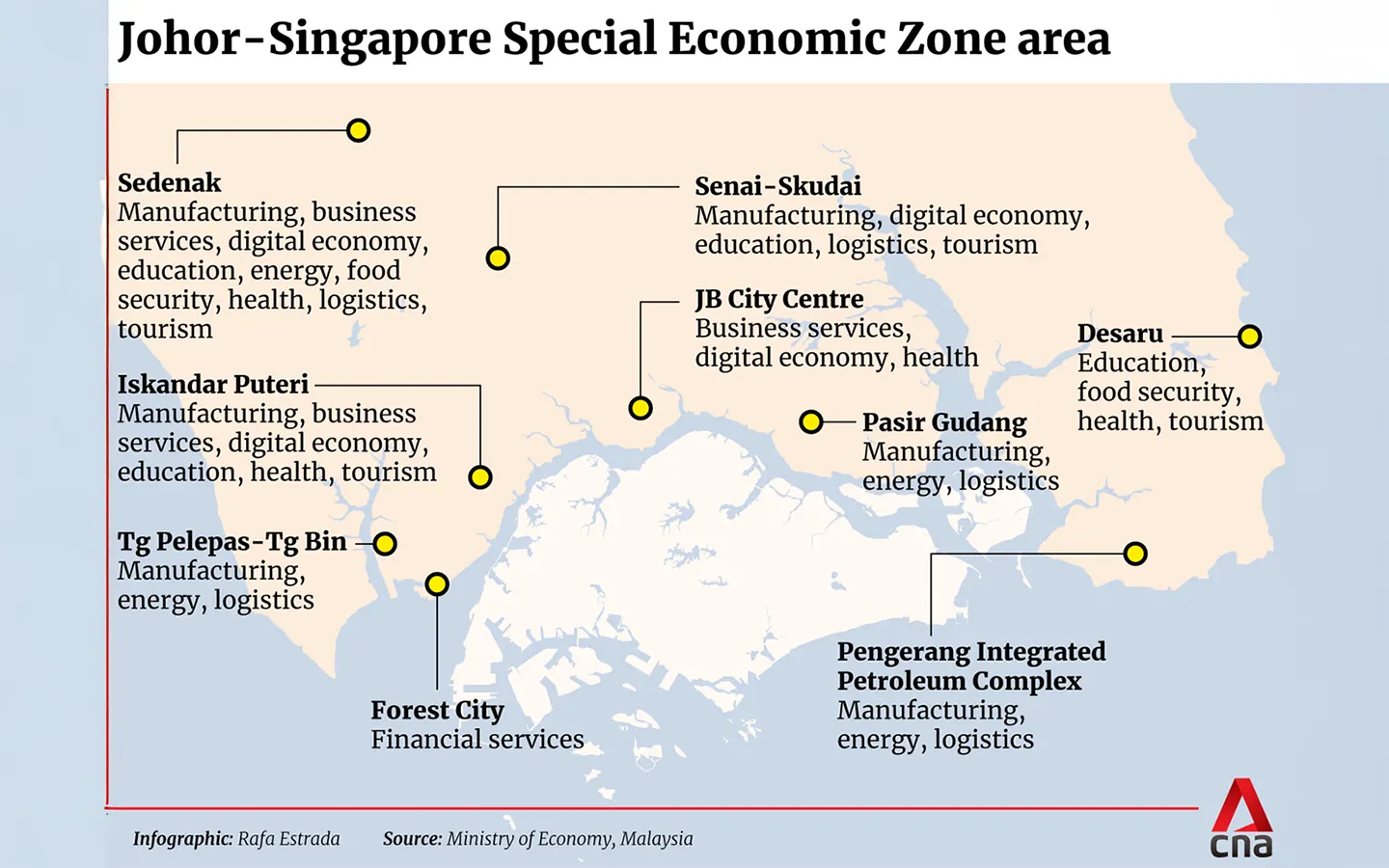
The JS-SEZ attracts investments across manufacturing, technology, logistics, and digital services, sectors that promise high-skilled employment opportunities. Crucially, tax incentives such as a concessionary 15% personal income tax rate for eligible knowledge workers and corporate tax rates as low as 5% have elevated Johor Bahru’s appeal for professionals and investors alike.
By 2025, thousands of professionals are estimated to have chosen to move to Johor Bahru to benefit from these opportunities, combining affordable living with proximity to Singapore’s job market.
Affordable Cost of Living Without Compromising Quality
Among Malaysians, the high cost of living in metropolitan areas like Kuala Lumpur, Penang, and especially Singapore has long been a concern. Johor Bahru offers a refreshing alternative with its significantly lower cost of living—approximately 66% cheaper than Singapore.
For instance, rental rates in Johor Bahru allow families to secure spacious three-bedroom apartments or landed homes in well-developed neighborhoods for the price that might only afford a small single room in Singapore. According to the latest data, average rent for a condominium in JB ranges from RM1,200 to RM2,800 monthly, compared to much higher rates in Singapore and even in Kuala Lumpur’s prime areas.
Beyond housing, daily expenses such as groceries, dining, and transportation are markedly more affordable, enabling residents to enjoy an elevated lifestyle without financial strain.
This affordability makes it highly practical for Malaysians considering a move to Johor Bahru in 2025 without compromising their quality of life.
Booming Property Market Fueled by Demand and Investment
Johor Bahru’s property market in 2025 is an emblem of the city’s rising stature. The market is vibrant, showing a healthy demand both from end-users and investors. Property prices in Johor have been on an upward trajectory, with condominiums fetching between RM400,000 to RM750,000 while landed properties near strategic locations command higher prices.
Investments now surpassing RM56 billion signal a confidence boost in JB’s real estate prospects, driven by mega projects and infrastructure developments. Premium properties near upcoming transport links like the Rapid Transit System (RTS) enjoy strong appreciation due to anticipated convenience and connectivity benefits.
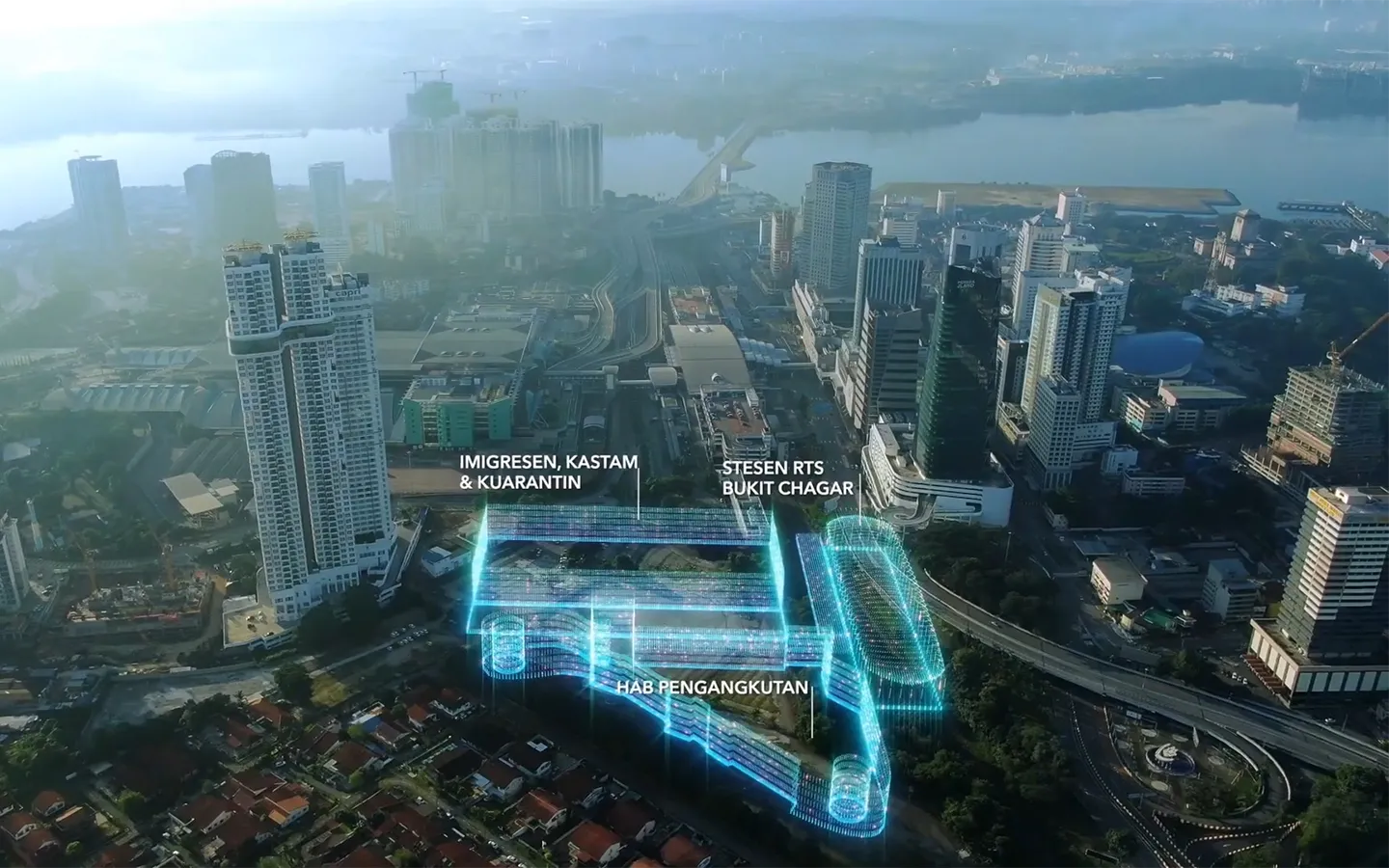
For example, areas like Bukit Chagar are prime property hotspots because of their proximity to cross-border checkpoints and the RTS station, which will drastically reduce commute times to Singapore once operational.
Rental yields have also been robust, attracting property investors looking to capitalize on JB’s expanding expatriate community and cross-border working professionals.
For investors, the influx of people who plan to move to Johor Bahru ensures a steady demand for both rental and resale markets.
Infrastructure Developments Enhancing Connectivity
Connectivity is a cornerstone of Johor Bahru’s attractiveness. The city is undergoing transformative infrastructure upgrades designed to streamline both local and international commuting.
Rapid Transit System (RTS)
Scheduled to complete in 2026, the RTS will directly link Johor Bahru’s Bukit Chagar station to Singapore’s Woodlands station. This rail link aims to alleviate current congestion at the Causeway and is expected to cut border crossing times dramatically—down from an average of 1-2 hours to about 10 minutes.
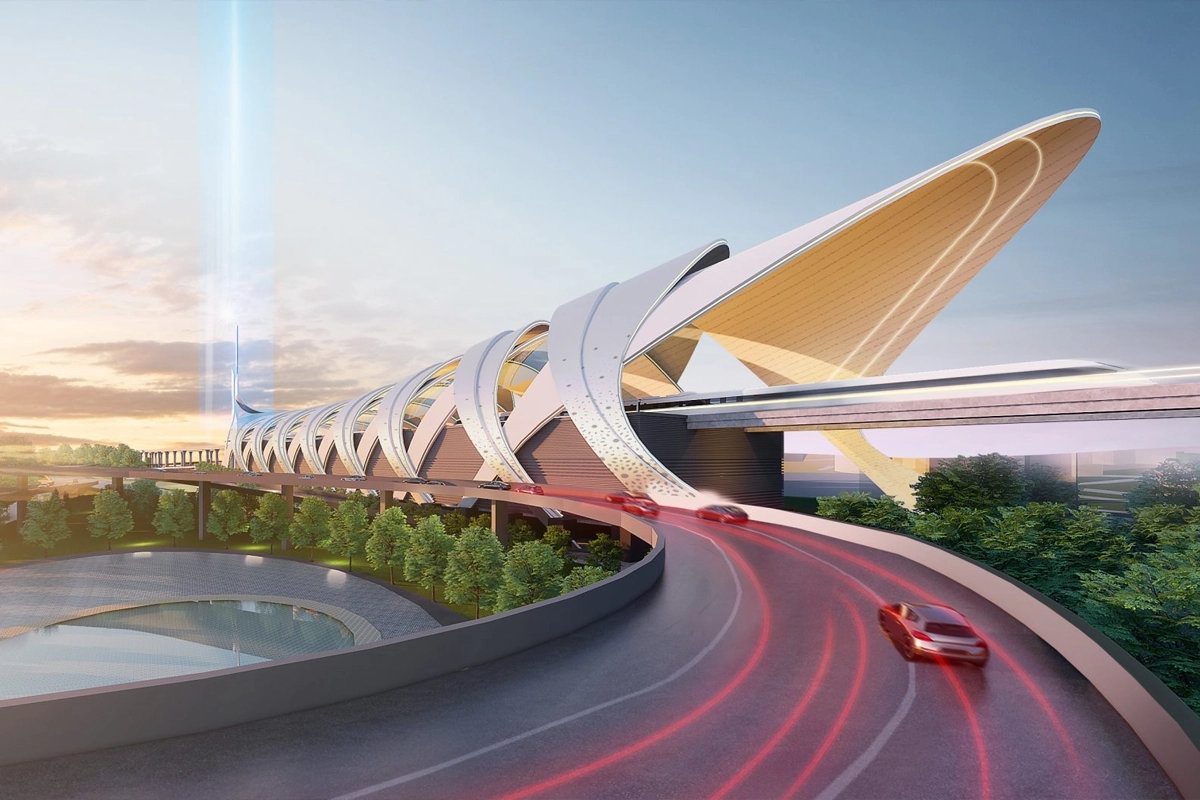
This enhancement makes living in Johor while working in Singapore genuinely practical, attracting more Malaysians and even some Singaporeans looking to move to Johor Bahru for better value.
Additional Projects and Developments
Other existing and planned projects include highway expansions to improve traffic flow and new industrial parks geared towards high-tech industries. Johor Bahru also boasts increased investment in digital infrastructure, with multiple data center projects underway, reinforcing the city’s growing status as a tech and innovation hub.
Robust Economic Growth and Job Creation
The economic resurgence of Johor Bahru is integral to this migration pattern. Early 2025 saw RM30 billion in investments pouring into Johor, with projections to surpass RM60 billion to RM100 billion by year-end. This level of investment outstrips most other Malaysian states.
Johor’s economy is transitioning toward knowledge-based and high-tech sectors with a focus on advanced manufacturing, biotech, artificial intelligence, and digital transformation industries. This shift generates a broad spectrum of skills-demanding jobs that appeal to a younger and more educated population.
Job seekers and skilled professionals recognize these opportunities and move to Johor Bahru to be close to emerging employers and flourishing industries, stimulating demand for residential properties and urban services.
It’s no surprise that ambitious professionals are seizing this chance to move to Johor Bahru in 2025, positioning themselves close to flourishing industries.
Lifestyle Upgrades and Social Amenities
Johor Bahru is no longer just a commuter town; it offers a vibrant lifestyle infused with both modern amenities and cultural richness.
New shopping complexes like R&F Mall Johor Bahru and Zenith Lifestyle Centre bring international brands, varied dining options, and recreational facilities that create appealing urban living spaces. The city hosts festivals, concerts, markets, and sporting events that engage communities and enrich social life.
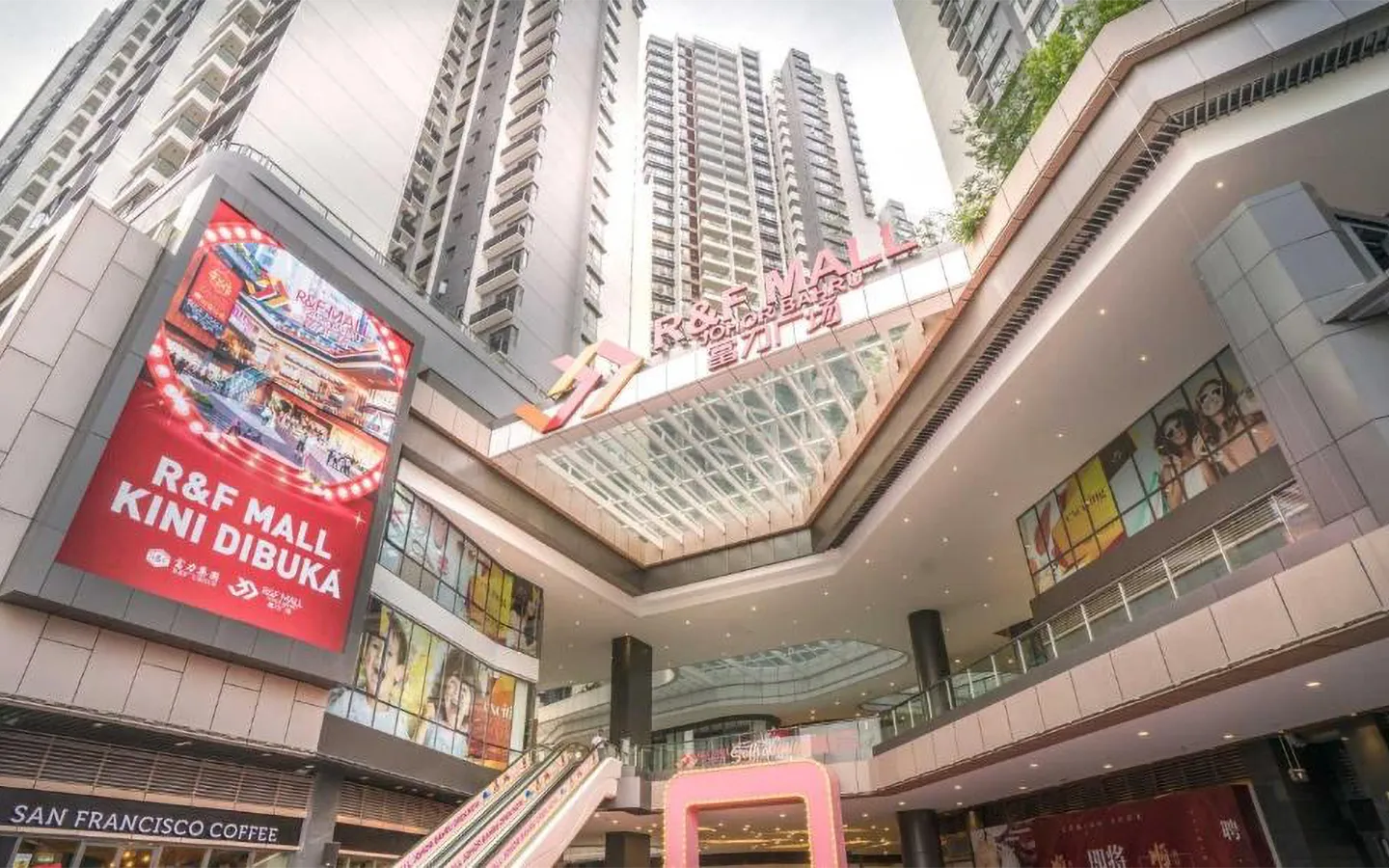
The integration of residential, retail, and leisure spaces in contemporary developments fosters a balanced lifestyle, conducive to work-life harmony. Families, young professionals, and retirees alike find suitable environments for their varied needs here.
Nature and Wellness Attractions
The region around Johor Bahru also provides access to natural and recreational amenities. Proximity to coastal beaches, islands, golf courses, and nature reserves offers healthy escapes from urban life. For wellness enthusiasts, there are modern spas, golf driving ranges with cafes, and unique entertainment venues such as retro-themed bowling alleys that cater to diverse tastes.
Such attractions enhance quality of life, making Johor Bahru more than just an economic choice but a place that supports holistic living.
Conclusion: The Future of Johor Bahru as a Migration Magnet
The converging forces of strategic location, economic incentives, cost advantages, infrastructure modernization, and enriched lifestyle choices explain why more Malaysians are relocating to Johor Bahru in 2025. The city’s rise as a desirable place to live and work reflects its capacity to adapt and grow in tune with regional dynamics and resident expectations.
As Johor Bahru continues to strengthen its infrastructure, attract investments, and cultivate a cosmopolitan lifestyle, it is poised to become a key player in Malaysia’s urban future, drawing a continual influx of residents seeking opportunity, affordability, and quality living.
IIf you’re planning to move to Johor Bahru in 2025, now is the ideal time to explore property opportunities and secure a better quality of life for the future.
resources:
- https://www.livinmalaysia.com/post/johor-bahru-expat-living-guide-cross-border-opportunities-and-lifestyle-advantages
- https://bambooroutes.com/blogs/news/malaysia-johor-bahru-johor-bahru-property-so-cheap
- https://www.nst.com.my/property/2025/09/1283417/johor-property-market-booms-rm56bil-investment-surge-mega-projects
Share this articles:


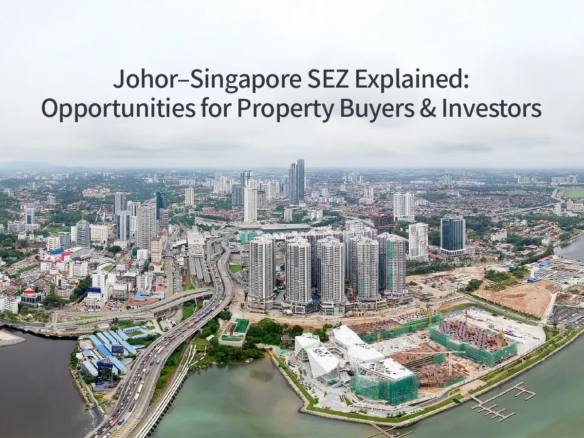
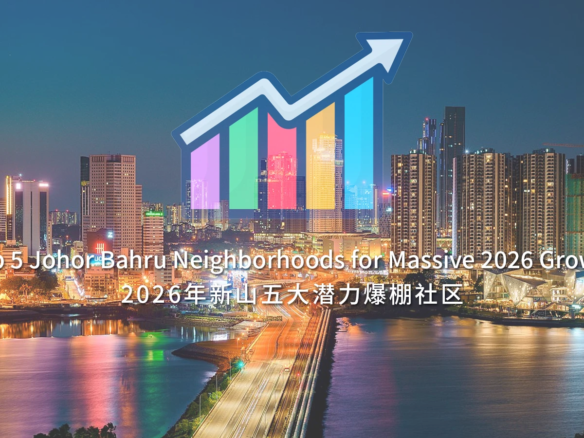

Join The Discussion